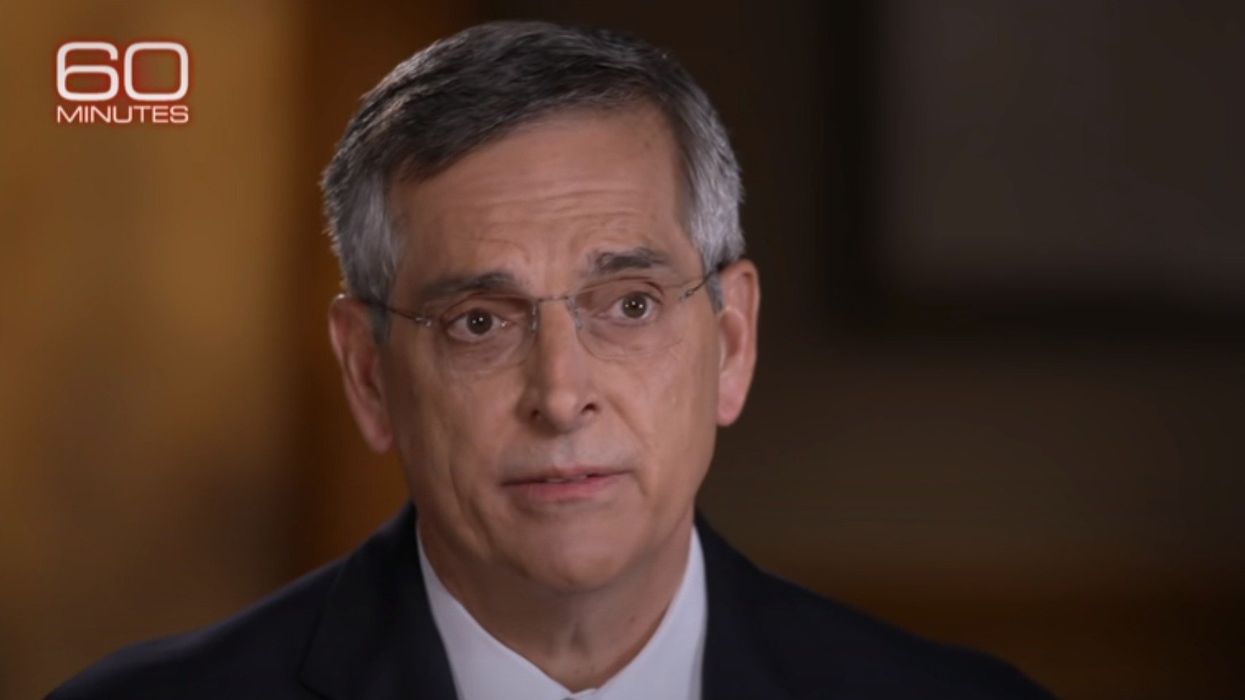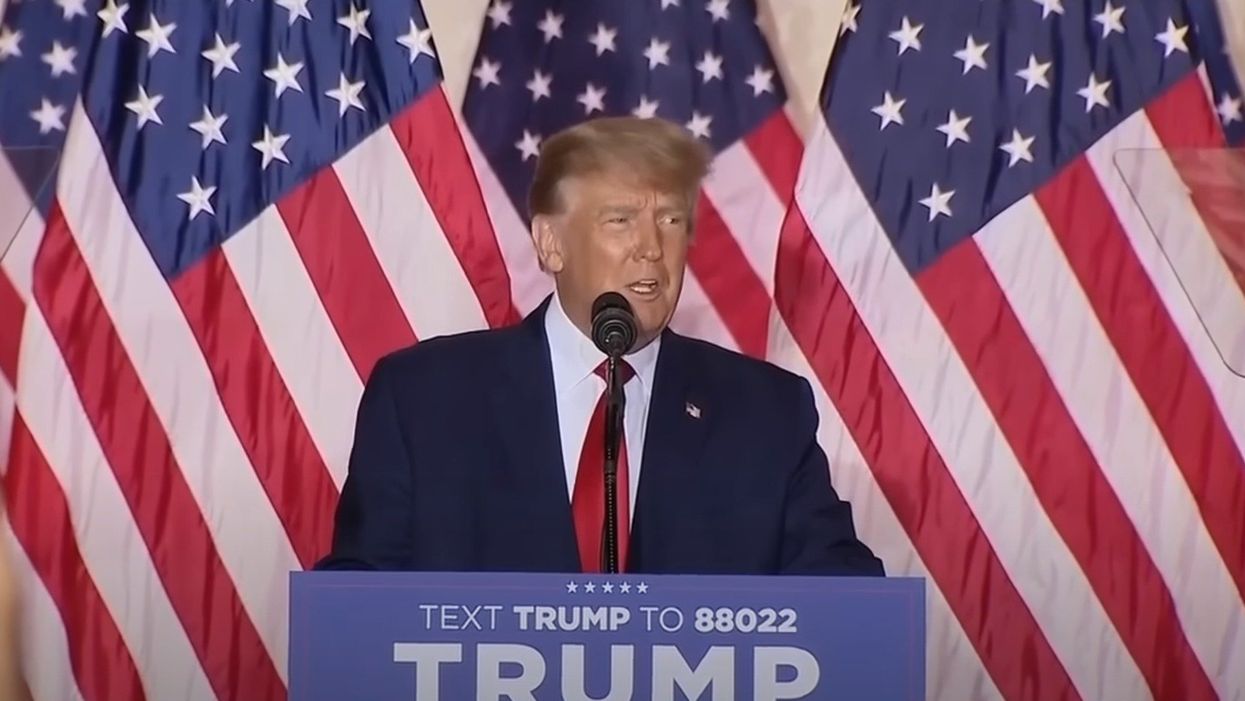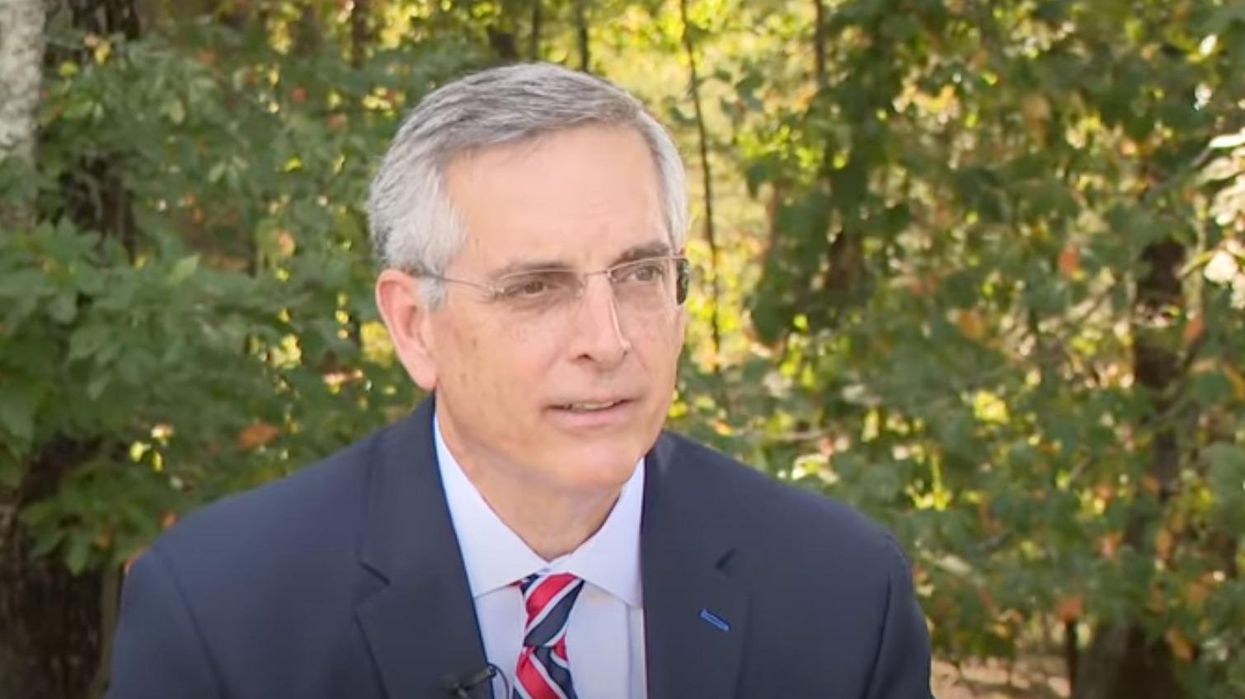Emails Expose Georgia Election Officials Scheming To Disrupt 2024 Vote
Even though voters aren't going to the polls for several weeks, there are already a slew of conservative groups organizing to sow doubt about the result in one particular battleground state if Republicans suffer a loss.
The Guardian recently reported on a trove of emails it obtained detailing efforts by a collection of MAGA-aligned organizations aiming to undermine election results in Georgia should Vice President Kamala Harris defeat former President Donald Trump in the critically important swing state. Several far-right groups — including Tea Party Patriots and the Election Integrity Network — are working with election officials in several Georgia counties who are sympathetic to their cause in an effort dubbed the "Georgia Election Integrity Coalition."
The emails, which were obtained via public records request from watchdog group Citizens for Responsibility and Ethics in Washington (CREW) and shared with the Guardian, show how election deniers in positions of power throughout Georgia are hoping to disrupt efforts to certify the 2024 election if Harris prevails. One of those election deniers is David Hancock, who is a member of the Gwinnett County Board of Registrations and Elections.
The effort appears to date back to January, when an unnamed website "admin" sent an email to members linking to an article by the United Tea Party of Georgia (UTPG) entitled "Georgia Democratic Party Threatens Elections Officials." That article described how an attorney with the Democratic Party of Georgia sent a letter to election officials in several counties reminding them that certifying an election wasn't discretionary and that failing to do so could result in legal action.
What likely prompted that letter was election officials in Cobb, DeKalb, and Spalding Counties refusing to certify the 2020 election in Georgia, which President Joe Biden narrowly won by less than 12,000 votes. UTPG called it "Orwellian to demand that election officials certify an election even if they have unanswered questions about the vote."
CREW discovered that the unnamed admin who wrote that UTPG article was indeed Hancock, who the Guardian described as an "outspoken election denier." On the same day the article was published, Hancock wrote: "All right – I finished the article and posted it."
Several of the email's recipients include election officials who tried to decertify election results in Georgia, like Republicans Michael Heekin and Julie Adams of the Fulton County Board of Elections, Debbie Fisher in Cobb County, Nancy Jester in DeKalb County and Roy McClain in Spalding County. Hancock urged them all to share the article in a February email, writing: "I think the message needs to get out, so share as you feel led."
Adams, using her TeaPartyPatriots.org email address, sought to coordinate voter fraud messaging with the group in a separate email. The group has hosted election deniers at their meetings, including Cobb County Republican Party co-chair Salleigh Grubbs, who successfully got the Georgia State Board of Elections to adopt a rule making it easier for counties to refuse to certify election results. Another featured speaker was state election board member Dr. Janice Johnston, whom Trump mentioned by name during an August rally in which he praised Republican election board members as "pit bulls" who were "fighting for victory."
The core argument of election deniers is that "widespread voter fraud" tarnishes the legitimacy of election results, requiring a delay in certification to conduct an investigation. However, as the Washington Post reported, there is no such thing as widespread voter fraud. Loyola Law School-Los Angeles professor Justin Leavitt found that out of more than one billion ballots cast between 2000 and 2014, there were just 31 instances of provable voter fraud. And in several Republican-controlled states including Arkansas, Florida, Georgia, Ohio, Texas and Virginia, voter fraud investigations dating back to the 2020 election only yielded 47 convictions.
According to the Guardian, Democrats have pointed to court cases in Georgia dating back to the 19th century showing that county election boards' certification duties are "ministerial," and not discretionary. Even Georgia Secretary of State Brad Raffensberger — a Republican — reportedly instructed a member of his office to remind county election officials that refusing to certify election results could subject them to legal proceedings.
Reprinted with permission from Alternet.












